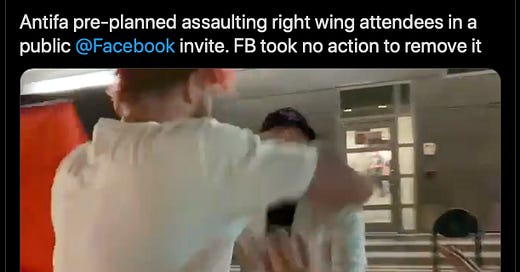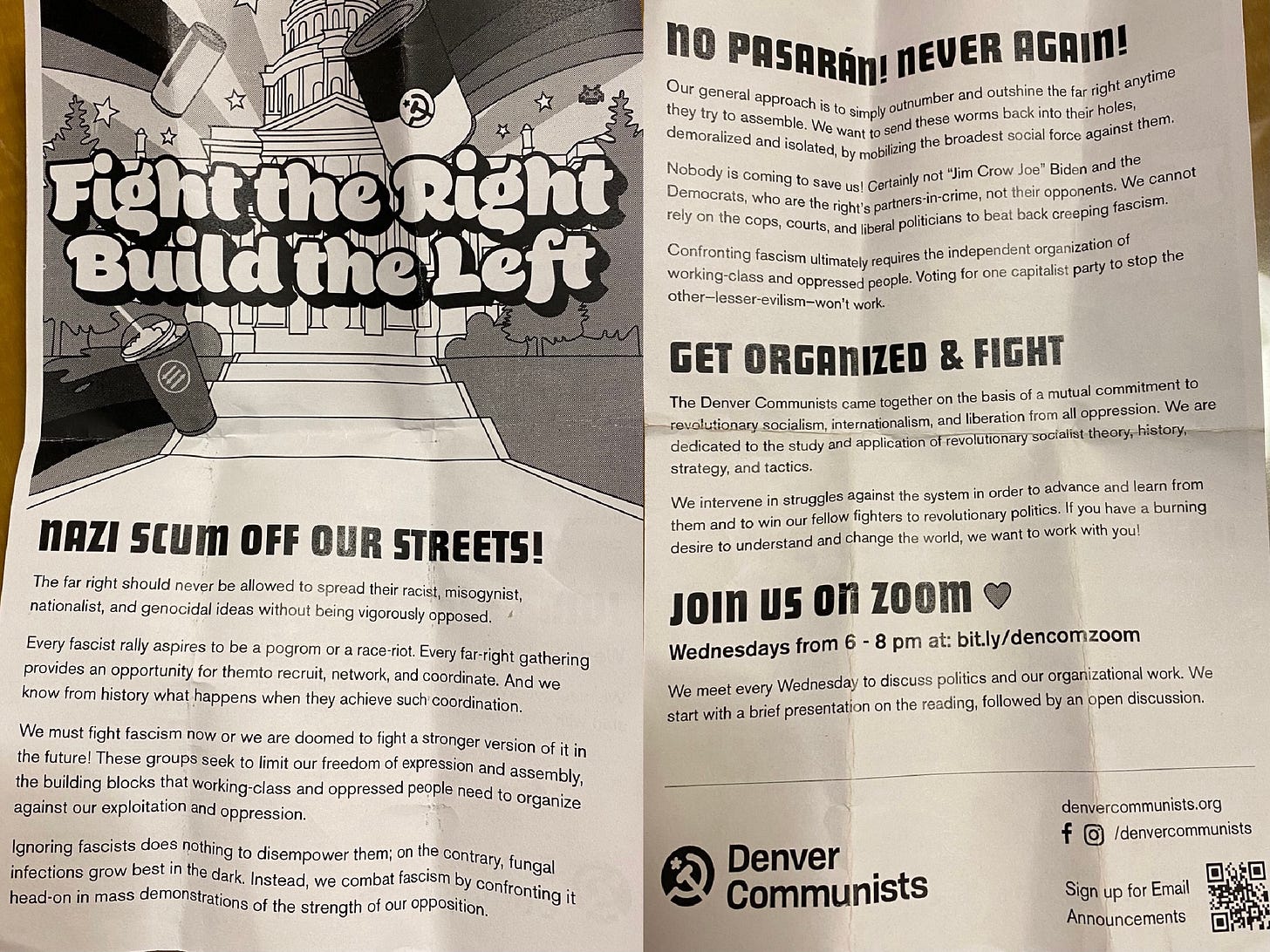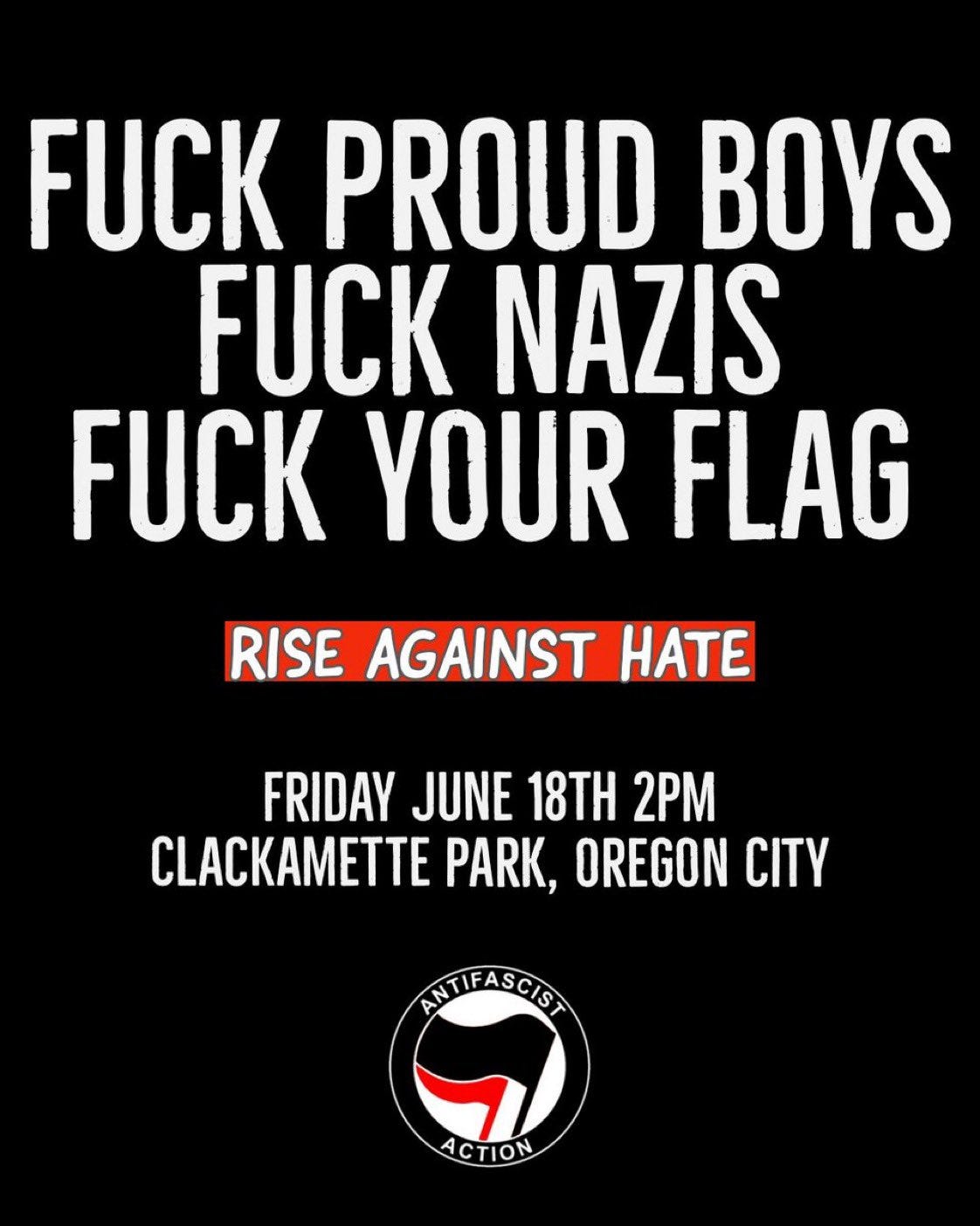This past weekend, separate antifa groups attempted to violently disrupt conservative events in Denver, CO and Oregon City, OR. Denver was hosting the Western Conservative Conference at a downtown Hyatt Regency, and a city park in Oregon City was the planned location of a flag waving event put on by local patriot group. I want to break down some of the concepts involving both incidents, and explain how antifa’s tactics in each complement their strategy.

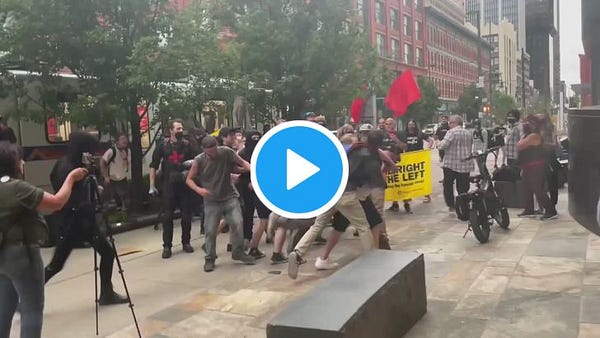

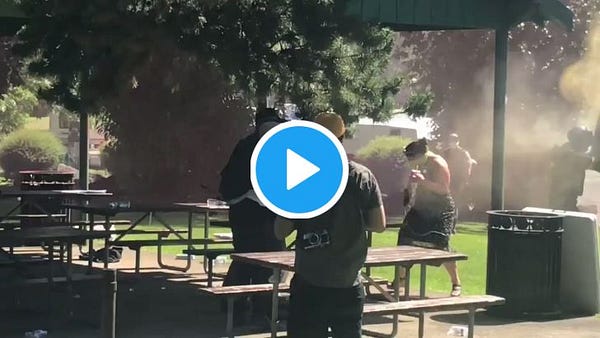
Something antifa sometimes does when an event is both (1) unpermitted, and (2) involves a public space, is occupy the planned space before the targeted group arrives and aggressively contest for control of it. The lack of a permit means first come first serve for the space, and this often leads to one of two outcomes: the groups cancels and walks away (a win for antifa) or the group fights back. The latter often just means the police come in, declare a riot, eject everyone from the contested zone, and the event is still effectively canceled (i.e. antifa wins again.) The latter happened in Oregon City: Antifa came first, fought the patriots, cops declared a riot, and the park was cleared.
The plan by doing this is to demoralize the opposition, and raise the cost of their political activities and organizing. This sort of calibrated harassment is ultimately about creating friction: a level of pressure that forces the less committed into staying home, and the more aggressive or hot-blooded into disproportionate escalation that opens the door to civil and criminal liability. A record of disruptive events can lead to future denials, regardless of who started it.


Antifa groups failed to shut down the conservative event in Denver, but did harass attendees, speakers, and hotel guests to the point that law enforcement had to intervene several times. They also blockaded streets and disrupted traffic however, which law enforcement did not interfere with.

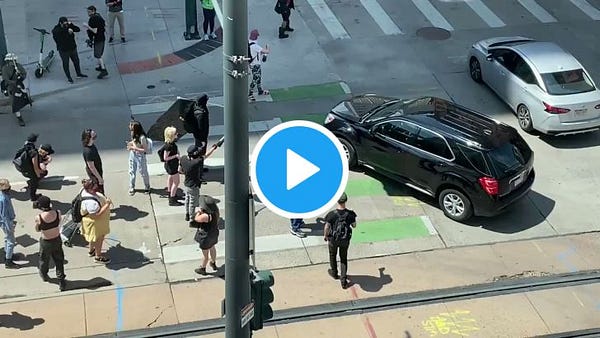
As I discussed in our monograph Unmasking Antifa: Five Perspectives on a Growing Threat, the objective in these cases is less shutting the specific event down than make the situation unpleasant enough that the principals involved reconsider in the future. If venues know that the situation is going to be contentious and lead to their other guests complaining or canceling, they may consider imposing additional security fees for the event or even refusing the booking. The goal is Operant Conditioning: using negative stimulus now in response to an action to make people self-censor in the future, so that further intervention is not required. By making right wing activism expensive, risky, and unpleasant, the desire is to slow the spread and adoption of those opposing ideas.
The Western Conservative Conference was a fairly mainstream conservative event, and the fact it was still targeted in this manner further underlines a point I’ve made previously about the rather tenuous and expansive definition of “fascism” the militant left claims to oppose.
Takeaways:
If using a public space, consider getting a permit and coordinating with local law enforcement to control access
If no permit is granted/desired, consider sending a group of reliable people to arrive extremely early and hold the space until the event
Consider ways to safely get attendees to/from the event location, and look for safe and secure parking
When selecting a venue, weigh the politics of the local jurisdiction and the competence/track record of local law enforcement
Small/independent venues tend to be more susceptible to localized pressure campaigns, so have a plan that includes secondary and tertiary locations in case of a last minute cancelation
Even mainstream conservative events in pretty much any urban area is at risk now
————————————————————————
Please join my Telegram channel to keep up with the community:
You can support my work here:
Cashapp: $eesmith4
